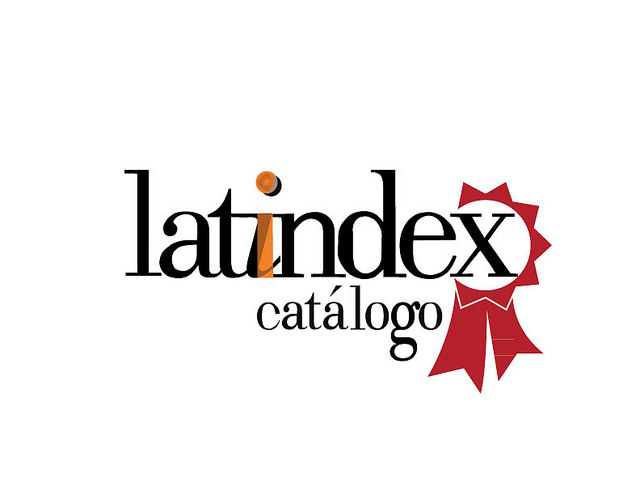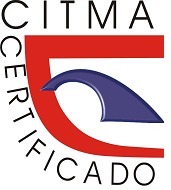The transformation of human talent within the framework of Industry 4.0
Keywords:
Experiential learning, human capital, competences, Industry 4.0Abstract
Human capital within the framework of Industry 4.0 must undergo a necessary transformation, acquiring high cognition skills that guarantee the assimilation of enabling technologies in Industry 4.0 for the substantial improvement of processes in any Industry. The objective of this work is to review part of the enabling technologies in Industry 4.0, along with other elements, and their possible implementation in the practice of experiential learning, in route to the development of the concept of Education 4.0 in Industrial Engineering. In addition, elements that influence their insertion in a learning environment in a laboratory are identified, which guarantees the experiential component in teaching. A case of intervention with students of Industrial Engineering from CUJAE is documented, where from the experiential experience of a group of students with the aforementioned technologies, a faster and more consolidated assimilation of these competences is identified when compared with students who are subjected to a traditional education.
References
Ardolino, M., Bacchetti, A., Perona, M., Zanardini, M., & Zheng, T. (2019). The impacts of Industry 4.0: a descriptive survey in the Italian manufacturing sector. Journal of Manufacturing Technology Management, 31(5), 1085-1115. doi: 10.1108/JMTM-08-2018-0269
Benešová, A., & Tupa, J. (2017). Requirements for Education and Qualification of People in Industry 4.0. Procedia Manufacturing, 11, 2195-2202. doi: https://doi.org/10.1016/j.promfg.2017.07.366
Boyatzis, R. E. (1982). The competent manager : a model for effective performance. Management Education and Development, 14(2), 144-152. doi: https://doi.org/10.1177/135050768301400208
Chakraborty, B., & Das, S. (2021). Introducing a New Supply Chain Management Concept by Hybridizing TOPSIS, IoT and Cloud Computing. Journal of The Institution of Engineers (India): Series C, 102(1), 109-119. doi: 10.1007/s40032-020-00619-x
Daniel Goleman, R. B. y. A. M. (2002). El líder resonante crea más (El poder de la inteligencia emcional). Plaza & Janés. Barcelona.
David C. McClelland. (1973). Testing for competence rather than for "intelligence." American Psychologist, 28(1), 1-14. doi: https://doi.org/10.1037/h0034092
Díaz Canel Bermúdez, M., & García Cuevas, J. L. (2020). Educación superior, innovación y gestión de gobierno para el desarrollo 2012-2020. Ingeniería Industrial, 41(3).
Ellahi, R. M., Ali Khan, M. U., & Shah, A. (2019). Redesigning Curriculum in line with Industry 4.0. Procedia Computer Science, 151, 699-708. doi: https://doi.org/10.1016/j.procs.2019.04.093
Forcina, A., & Falcone, D. (2021). The role of Industry 4.0 enabling technologies for safety management: A systematic literature review. Procedia Computer Science, 180, 436-445. doi: https://doi.org/10.1016/j.procs.2021.01.260
Forum, W. E. (2020). Future of Jobs Report 2020, Genova.
Forum., W. E. (2016). The Future of Jobs Employment, Skills and Workforce Strategy for the Fourth Industrial Revolution. Geneva, Switzerland. Recuperado de http://www3.weforum.org/docs/WEF_Future_of_Jobs.pdf.
Forum., W. E. (2018). The Future of Jobs Report. Geneva, Switzerland. Recuperado de http://www3.weforum.org/docs/WEF_Future_of_Jobs_2018.pdf.
Ghobakhloo, M., & Fathi, M. (2019). Corporate survival in Industry 4.0 era: the enabling role of lean-digitized manufacturing. Journal of Manufacturing Technology Management, 31(1), 1-30. doi: 10.1108/JMTM-11-2018-0417
Guzmán, D. S. (2019). Industria y educación 4.0 en México: un estudio exploratorio. Revista Innovación Educativa, 19(81), 39-63.
Intezari, A., & Gressel, S. (2017). Information and reformation in KM systems: big data and strategic decision-making. Journal of Knowledge Management, 21(1), 71-91. doi: 10.1108/JKM-07-2015-0293
Ivanov, D. (2019). Disruption tails and revival policies: A simulation analysis of supply chain design and production-ordering systems in the recovery and post-disruption periods. Computers & Industrial Engineering, 127, 558-570. doi: https://doi.org/10.1016/j.cie.2018.10.043
Ivanov, D. (2020). Predicting the impacts of epidemic outbreaks on global supply chains: A simulation-based analysis on the coronavirus outbreak (COVID-19/SARS-CoV-2) case. Transportation Research Part E: Logistics and Transportation Review, 136, 101922. doi: 10.1016/j.tre.2020.101922
James Manyika, S. L., Michael Chui, Jacques Bughin, Jonathan Woetzel, Parul Batra, Ryan Ko, and Saurabh Sanghvi. (2017). Jobs lost, jobs gained: What the future of work will mean for jobs, skills, and wages. McKinsey Global Institute.
Jover, J. N. (1999). La ciencia y la tecnología como procesos sociales. Lo que la educación científica no debería olvidar. La Habana: Editorial Félix Varela, 27-48.
Jover, J. N. (2013). Responsabilidad social universitaria y desarrollo sustentable. UCE Ciencia. Revista de postgrado, 1(1).
Logesswari, S., Jayanthi, S., KalaiSelvi, D., Muthusundari, S., & Aswin, V. (2020). A study on cloud computing challenges and its mitigations. Materials Today: Proceedings. doi: https://doi.org/10.1016/j.matpr.2020.10.655
Louw, L., & Deacon, Q. (2020). Teaching Industrie 4.0 technologies in a learning factory through problem-based learning: case study of a semi-automated robotic cell design. Procedia Manufacturing, 45, 265-270. doi: https://doi.org/10.1016/j.promfg.2020.04.105
Martí, J. (1973). Obras Completas de José Martí (Vol. 19). Cuba: Educación Popular : Ciencias Sociales
Martínez-Plumed, F., Gómez, E., & Hernández-Orallo, J. (2021). Futures of artificial intelligence through technology readiness levels. Telematics and Informatics, 58, 101525. doi: https://doi.org/10.1016/j.tele.2020.101525
Mertens, L. (1996). Competencia laboral: sistemas, surgimiento y modelos. Montevideo.
Mohanta, B. K., Jena, D., Satapathy, U., & Patnaik, S. (2020). Survey on IoT security: Challenges and solution using machine learning, artificial intelligence and blockchain technology. Internet of Things, 11, 100227. doi: https://doi.org/10.1016/j.iot.2020.100227
Moshref-Javadi, M., & Winkenbach, M. (2021). Applications and Research Avenues for Drone-Based Models in Logistics: A Classification and Review. Expert Systems with Applications, 114854. doi: https://doi.org/10.1016/j.eswa.2021.114854
Mourtzis, D., Vlachou, E., Dimitrakopoulos, G., & Zogopoulos, V. (2018). Cyber- Physical Systems and Education 4.0 –The Teaching Factory 4.0 Concept. Procedia Manufacturing, 23, 129-134. doi: https://doi.org/10.1016/j.promfg.2018.04.005
Mundial., B. (2019). Informe sobre el desarrollo mundial 2019: La naturaleza cambiante del trabajo . Informe sobre el desarrollo mundial. Washington, DC: Banco Mundial. Recuperado de https://openknowledge.worldbank.org/handle/10986/30435. doi: 10.1596/978-1-4648-1328-3
Neumann, G. (2008). Simulation education in logistics: case studies in a virtual learning environment. Paper presented at the Proceedings of the 22nd European Conference on Modeling and Simulation. eds. LS Louca. Recuperado de http://www.scs-europe.net/conf/ecms2008/ecms2008%20CD/ecms2008%20pdf/lt-ECMS2008_0116.pdf
Noruzy, A., Dalfard, V. M., Azhdari, B., Nazari-Shirkouhi, S., & Rezazadeh, A. (2013). Relations between transformational leadership, organizational learning, knowledge management, organizational innovation, and organizational performance: an empirical investigation of manufacturing firms. The International Journal of Advanced Manufacturing Technology, 64(5), 1073-1085. doi: 10.1007/s00170-012-4038-y
Porto, C. E. (2019). La Industria 4.0: ¿Una nueva industria? Cubahora, primera revista digital de Cuba. Recuperado de https://www.cubahora.cu/ciencia-y-tecnologia/la-industria-4-0-una-nueva-industria
Quesada Morales, D., Cruz Ruíz, A., & Martínez Rodríguez, M. (2018). Validación y análisis de la confiabilidad del cuestionario" Dimensiones de las organizaciones que aprenden" para el entorno cubano. Revista Estudios del Desarrollo Social: Cuba y América Latina, 6(1), 200-218.
Roig, C. (2017). Industria 4.0: la cuarta (re) evolución industrial. Revistas Harvard Deusto, 266, 64-70.
Sandberg, E., & Åman, P. (2010). Logistics learning mechanisms and capabilities: towards an understanding of sustainable competitive advantage. Logistics Research, 2(2), 97-108. doi: 10.1007/s12159-010-0029-2
Santos, A. C., & Martínez, I. L. (2020). Hacia las competencias profesionales 4.0 en la empresa cubana. Revista Cubana de Ingeniería, 11(1), 66-76.
Savolainen, J., & Collan, M. (2020). How Additive Manufacturing Technology Changes Business Models? – Review of Literature. Additive Manufacturing, 32, 101070. doi: https://doi.org/10.1016/j.addma.2020.101070
Senge Peter M, C. R., Richard B Ross, Bryan J Smith, Art Kleiner. (1995). La quinta disciplina en la práctica : cómo construir una organización inteligente. España: Ediciones Granica, 1995.
Shahin, M., Chen, F. F., Bouzary, H., & Krishnaiyer, K. (2020). Integration of Lean practices and Industry 4.0 technologies: smart manufacturing for next-generation enterprises. The International Journal of Advanced Manufacturing Technology, 107(5), 2927-2936. doi: 10.1007/s00170-020-05124-0
Sievers, T. S., Schmitt, B., Rückert, P., Petersen, M., & Tracht, K. (2020). Concept of a Mixed-Reality Learning Environment for Collaborative Robotics. Procedia Manufacturing, 45, 19-24. doi: https://doi.org/10.1016/j.promfg.2020.04.034
Stevenson, M., Cole, R., & Aitken, J. (2019). Blockchain technology: implications for operations and supply chain management. Supply Chain Management: An International Journal, 24(4), 469-483. doi: 10.1108/SCM-09-2018-0309
Ustundag, A., & Cevikcan, E. (2017). Industry 4.0: managing the digital transformation: Springer. doi: 10.1007/978-3-319-57870-5
Venkatesh, V. S. S., Deoghare, A. B., & Singh, S. N. (2021). A review on the role of 3D printing in the fight against COVID-19: safety and challenges. Rapid Prototyping Journal, 27(2), 407-420. doi: 10.1108/RPJ-08-2020-0198
Zubizarreta, J., Aguinaga, I., & Amundarain, A. (2019). A framework for augmented reality guidance in industry. The International Journal of Advanced Manufacturing Technology, 102(9), 4095-4108. doi: 10.1007/s00170-019-03527-2
Downloads
Published
How to Cite
Issue
Section
License
Copyright (c) 2021 Igor Lopes Martínez

This work is licensed under a Creative Commons Attribution-NonCommercial 4.0 International License.













